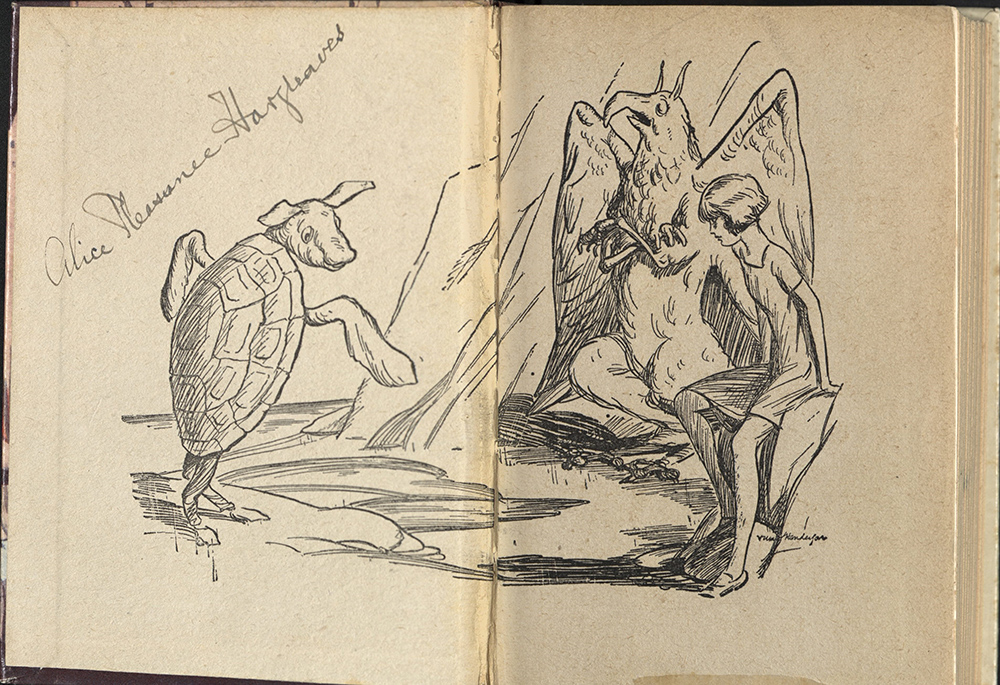08 June 2015
Houghton Library - And Being Famous As A Child.

I'd heard that the Houghton Library at Harvard had an Alice 150 site based on its collections, but I hadn't got around to checking it out. But a friend reminded me to do so, and I think it's charming. Take a look
The image at the top of this post shows one of the items in the collection. It is a copy of Alice in Wonderland owned by Alice Hargreaves herself. Although she told nobody about her connection with the famous book for most of her life, she did quietly collect editions of it. How interesting it would be to know what she really thought about the whole thing, and why she never spoke about it until, short of money, she needed to sell the original manuscript. It must have been a most peculiar experience to gradually realise that "her" story was becoming world famous.
This kind of vicarious fame hasn't been good for some others who were inspiration for famous books, notably "Christopher Robin" Milne, who fell out with both his parents, and whose mother refused to see him even on her deathbed - and Peter Llewellyn Davies (Peter Pan) who actually killed himself. These examples were well in the future for Alice and Lewis Carroll, of course, but perhaps Alice's parents were wise not to encourage her to become precociously famous for something that was none of her doing.
The sad fate of many child stars comes to mind, too. Their lives are defined by something they had to do before they were old enough to make a reasoned choice... although some, like Shirley Temple
.jpg)
managed to use their early, unlooked-for fame as a stepping stone, rather than as a millstone. I wonder if anyone has written a study of the effects of childhood fame.
 Feed
Feed